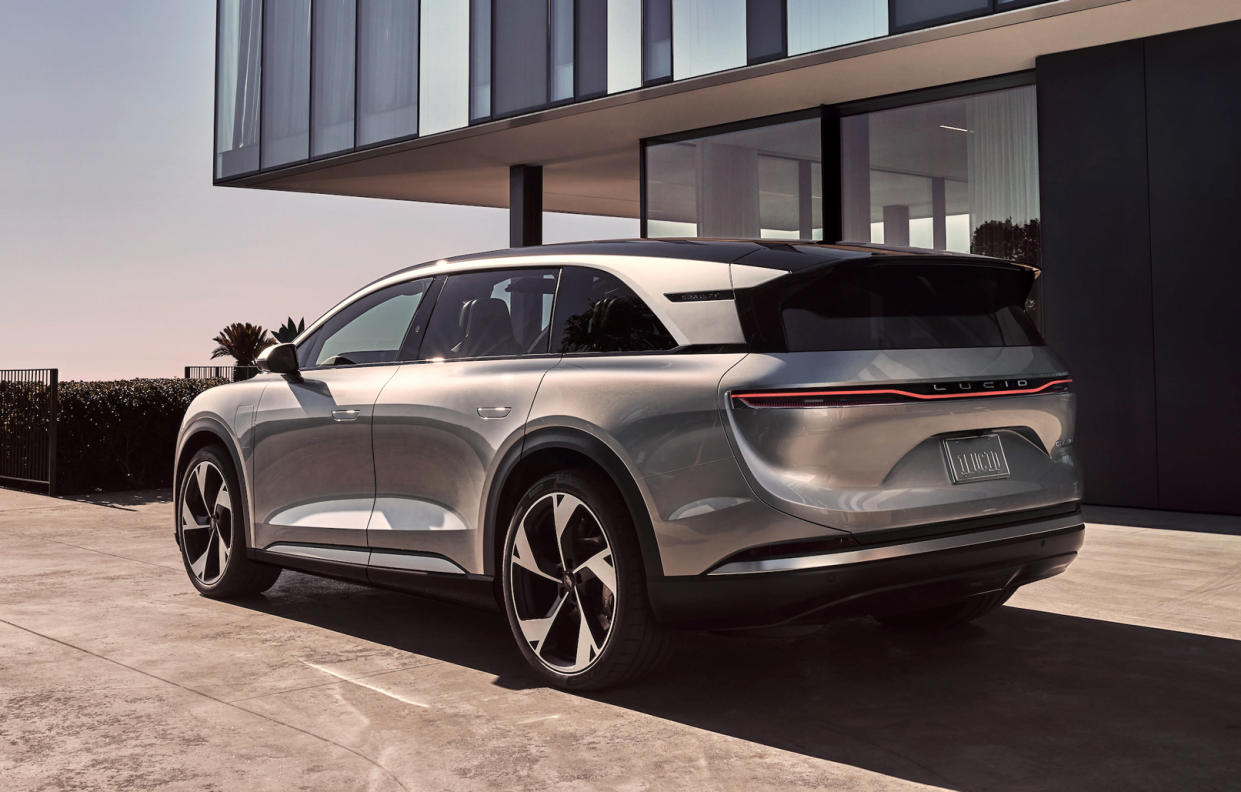Lucid Motors' Gravity SUV will have Tesla charging built in

Lucid Motors is just a few months away from finally launching its electric SUV, and the company now says the upcoming vehicle -- dubbed Gravity -- will have Tesla's North American Charging Standard (NACS) built right in, making an adapter unnecessary.
Lucid announced the news ahead of a planned "Technology and Manufacturing Day" event at its Arizona factory, where the company will go into greater detail about how it has designed and will build the Gravity. The company previously announced that it would start offering adapters for its current EV, the Air, in 2025 and that it planned to integrate NACS charging in future vehicles.
Making the Gravity as attractive a product as possible is crucial for Lucid, which has struggled to grow sales of its Air sedan at a time when SUVs are dominant in North America. The company has repeatedly tapped Saudi Arabia, which is its majority owner, for fresh funding to get the Gravity into production. Most recently Lucid announced in August that it was taking up to another $1.5 billion from the Kingdom.
Building NACS into the Gravity is yet another sign of how widely the automotive industry is adopting Tesla's charging standard.
Tesla announced plans to open up the technology -- which grants access to its widespread Supercharger network -- back in 2022. Since then, essentially every major automaker and EV startup has announced plans to either offer adapters to their customers that let their vehicles plug into the network, or to build the tech right into future vehicles.
One of Lucid's closest peers in the EV startup world, Rivian, announced earlier this year that its upcoming mass-market R2 SUV will come with the NACS port. But that vehicle won't be ready until 2026. In the meantime, owners of Rivian's R1T pickup and R1S SUV have to use adapters, much like the other legacy automakers. That process has been slow, as a New York Times article recently pointed out, following Tesla CEO Elon Musk's decision to dismiss nearly all of the company's Supercharger team earlier this year amid a much wider restructuring.

 Yahoo Movies
Yahoo Movies 
